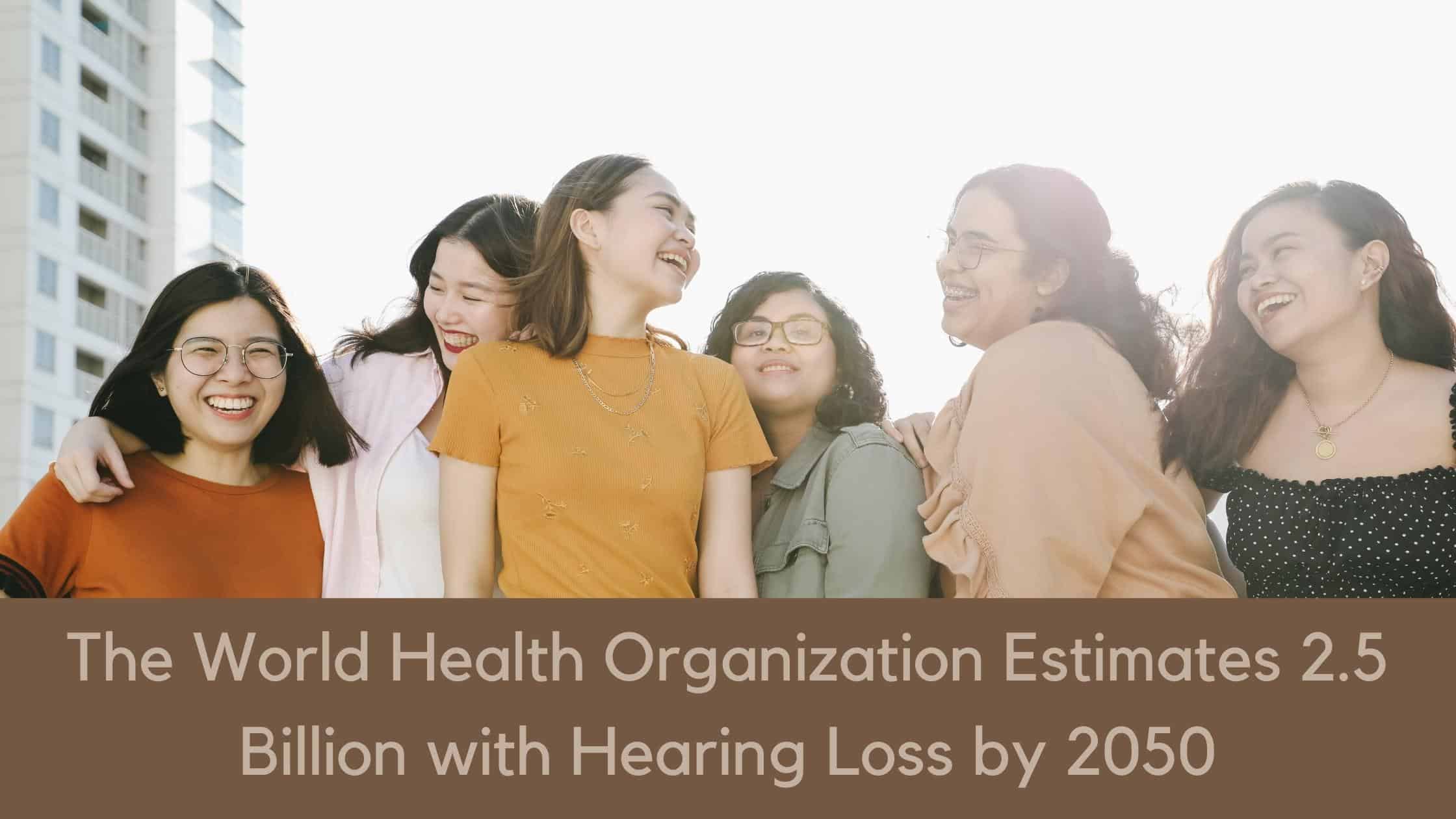
- Tips for Veterans Dealing With Hearing Loss - April 25, 2024
- How to Properly Clean Your Hearing Aids - April 15, 2024
- How to Handle Ear Infections With Hearing Aids - April 5, 2024
The World Health Organization is responsible for managing the worst public health epidemics of our time. Of course, COVID-19 is on their mind, and they are responsible for using the tools of education, resource allocation, and training to make sure that disease rates stay as low as possible. The HIV/AIDS epidemic has been high on the list of concerns for public health officials at the World Health Organization, as well. With these life-threatening diseases in mind, why is this organization concerned with hearing loss? It turns out that hearing loss is a serious condition affecting the health, social stability, and economic performance of people around the globe. From these and many other perspectives, this epidemic of worldwide hearing loss is cause for public health concern.
Hearing Loss Estimates
In order to show the weight of hearing loss on public wellbeing, the World Health Organization produced a report estimating the size and scale of effects worldwide. They estimate that 2.5 billion people will be living with hearing loss by the year 2050. When you consider that the current population of the planet is nearly 8 billion people right now, this high number is cause for concern if not alarm. Today they estimate that 1.5 billion people are living with some form of hearing loss. These numbers include a climbing proportion of younger people with hearing loss. Although age-related hearing loss is one of the most common types, only affecting seniors, recent years have seen a spike in the numbers of teenagers and young adults with hearing loss. Perhaps the climb in these numbers will be responsible for the estimated 2.5 billion people in 2050 with some form of hearing loss.
Hearing Loss Costs
One way to think about the global effect of hearing loss is to consider how much it costs the world economy. When a person has untreated hearing loss, costs are associated in a number of ways. Untreated hearing loss contributes to many health and wellness conditions, such as dementia, and we know that those who have untreated hearing loss are more likely to develop this condition. The cost of that disproportionate level of dementia support could be considered a cost of untreated hearing loss. In addition, untreated hearing loss makes workers less productive. Whether due to poor communication ability at work, mistakes that harm productivity, or even accidents or injuries on the job associated with poor hearing ability, these costs add up to an enormous weight on individual wellbeing and the global economy. All told, the World Health Organization estimates that 1 trillion dollars are lost due to untreated hearing loss each year.
Promoting Treatment
One of the other functions of this report was to promote wider access to treatment around the world. Many places suffer from lack of access to audiological services or a lack of resources to purchase the necessary assistive devices. Including ear and hearing health services in national health plans is one way to expand access. Although many countries have national health plans that provide free healthcare for all citizens, many of these plans don’t include access to hearing health services, including hearing aids. Public awareness campaigns can be helpful, as well.
By educating the public about the benefits of treatment, more people can access the services they do have available to them. Many people in the developed world are not taking advantage of the hearing health treatments they can afford. Despite having a hearing health center nearby and adequate funding to pay for their services, other barriers, such as psychological resistance, get in the way of accessing services.
If you or someone you love is in this category of people with knowledge and access to hearing health services, why not take this World Health Organization report as a prompt to action. With the expanding population of people with hearing loss and the tremendous cost of going without treatment, this report can point you toward taking the next step.
You can play your part in education, as well. Passing this information to others will spread the word about hearing health, making it possible to reduce that number of 2.5 billion one person at a time.
